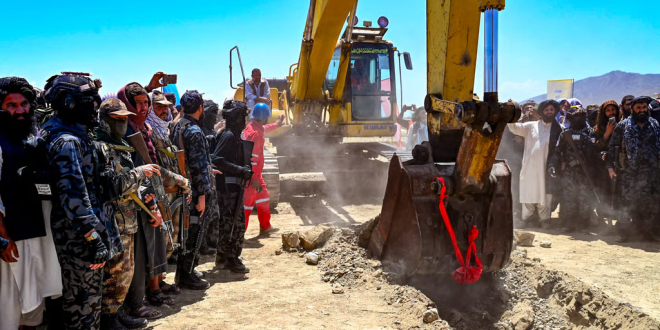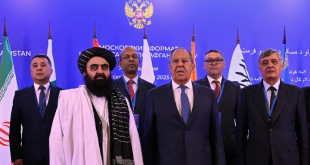KABUL – After nearly two decades of delays, a China-backed copper mining project in Afghanistan is finally gathering pace—but its future remains uncertain amid mounting political, security, and reputational risks.
The Mes Aynak copper deposit in Logar province, believed to be one of the largest untapped copper reserves in the world, was awarded in 2008 to China Metallurgical Group Corporation (MCC), a state-owned enterprise. The 30-year contract promised major economic returns for both Beijing and Kabul, but the project was stalled for years due to insurgent violence, poor infrastructure, landmines, and the discovery of priceless archaeological relics dating back to the Bronze Age.
Now, under Taliban rule, the project is moving forward. MCC says it is prepared to begin copper extraction by the end of this year, pending final government approvals. A new road to the mine is nearing completion, and Taliban officials have pledged to switch from open-pit to underground mining to protect ancient Buddhist ruins at the site—an apparent bid to improve the project’s optics internationally.
For the Taliban, the project is a flagship of their push for economic legitimacy and foreign investment following the U.S. withdrawal in 2021. Afghan observers say both the Taliban and the former U.S.-backed government saw Mes Aynak as a model to lure additional foreign capital into mining and infrastructure.
However, serious doubts persist. The total project cost has ballooned from $2.8 billion to over $5 billion, and MCC has already poured in $430 million without generating any revenue. China is the world’s largest consumer of copper and needs steady supplies for everything from electric vehicle batteries to military equipment, but experts say Mes Aynak offers limited strategic or economic value compared to more secure options in Africa and Latin America.
Zhu Yongbiao, director of the Centre for Afghanistan Studies at China’s Lanzhou University, said the decision to resume construction reflects a reluctant compromise. MCC is under pressure from the Taliban to deliver on its long-stalled commitments but remains wary of the regime’s credibility.
“The Taliban’s political reliability is highly questionable,” Zhu said, pointing to their recent termination of a separate oil contract with another Chinese firm over alleged violations. “There’s a real risk they could cancel or revise deals at any moment.”
Beyond local governance concerns, international complications loom large. Most Western governments do not recognize the Taliban and continue to impose sanctions, meaning major cooperative projects like Mes Aynak could expose China to reputational damage or even sanctions of its own.
Still, Beijing has treaded carefully. While it has not formally recognized the Taliban, China has maintained an embassy in Kabul and appointed a new ambassador in 2023. The Taliban followed suit by sending former spokesman Bilal Karimi as their envoy to Beijing. High-level meetings have followed, including a trilateral dialogue with Pakistan, where Chinese officials pledged continued support for Afghanistan’s reconstruction.
Despite these efforts, analysts caution that China remains deeply frustrated by the Taliban’s failure to fulfill key commitments—especially on counterterrorism. Beijing has repeatedly demanded action against the East Turkestan Islamic Movement (ETIM), a UN-listed terrorist group blamed for past attacks in Xinjiang. So far, the Taliban have offered few assurances.
Human rights and governance also remain sticking points. China is urging the Taliban to form a more inclusive government and protect women’s rights, but progress has been negligible. As such, Zhu believes there is limited room for deeper cooperation unless Kabul delivers on Beijing’s core concerns.
“The Taliban are trying to project a business-friendly image, but their actions continue to undermine trust,” he said.
Meanwhile, copper remains a globally strategic resource. According to the UN trade body UNCTAD, demand is expected to soar by over 40% by 2040, with the supply side struggling to keep up. Mes Aynak’s 705 million tonnes of ore could yield over 11 million tonnes of refined copper—attractive figures for any industrial economy.
 Afghanistan Times Latest News and Analysis from Afghanistan and the Region
Afghanistan Times Latest News and Analysis from Afghanistan and the Region




